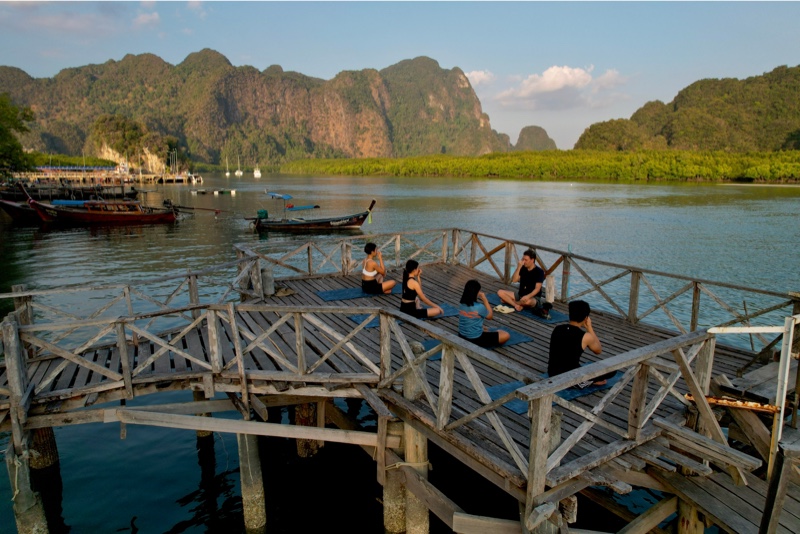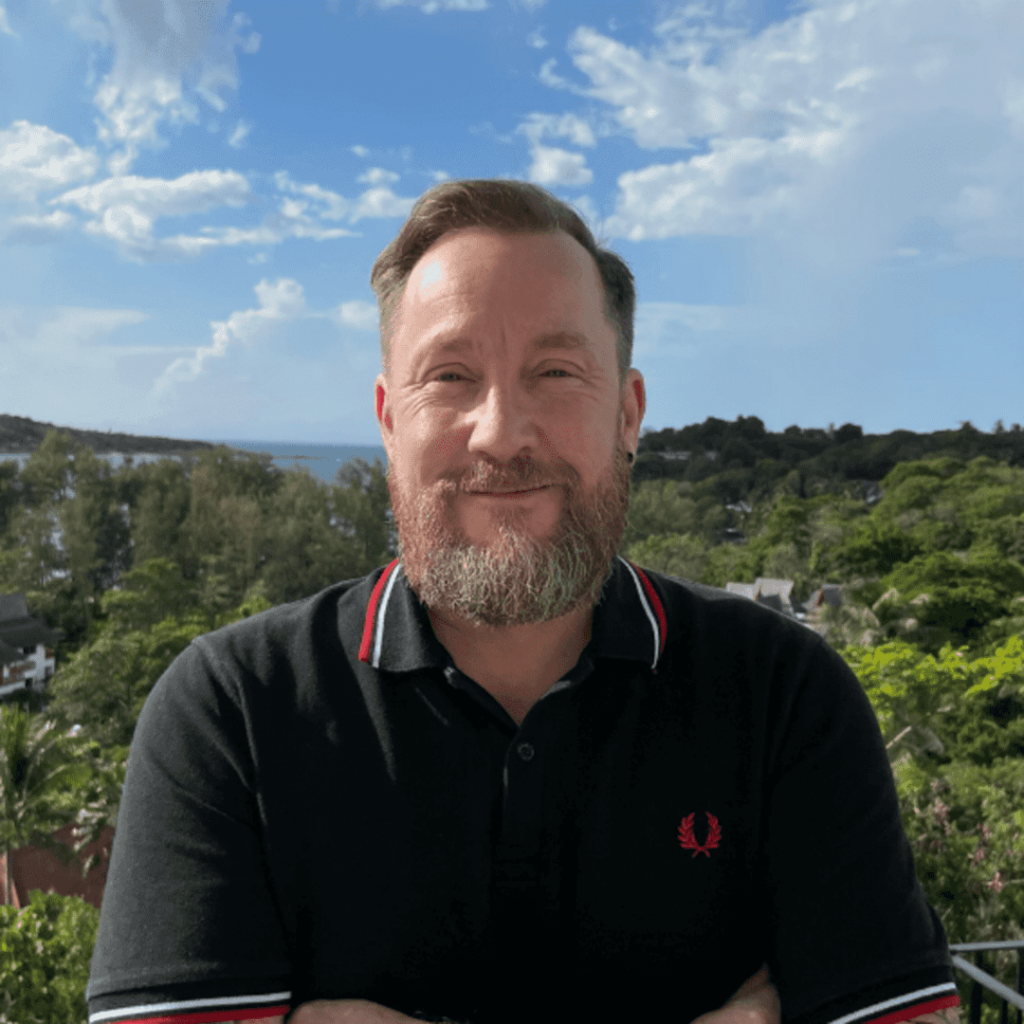Why a Trauma Healing Retreat May Work Better Than Outpatient Therapy

Healing from trauma is a complex, deeply personal journey. Many people find regular sessions with a skilled trauma therapist are enough to gradually reduce symptoms and rebuild a sense of safety. But for others, progress can feel frustratingly slow, or it may stall entirely. Life’s pressures, environmental stress, and the limits of outpatient therapy can all stand in the way of real change.
If you have been working on your trauma for months or even years and still feel stuck in old patterns, it might be time to consider a different approach. Attending a trauma healing retreat offers the time, space, and immersive support needed to help your mind and body fully engage in the recovery process.
When you step out of your everyday environment, you give your nervous system a break from constant stress signals. You also remove the distractions that compete with your healing work, allowing your energy to go toward recovery rather than survival. At Yatra Centre in Thailand, we have seen how this shift can accelerate progress for people who have been struggling to heal in an outpatient setting.
Why Outpatient Trauma Therapy Is Not Always Enough
Outpatient therapy has its strengths, but it also comes with limitations, especially for those dealing with complex or long-standing trauma. Here are some of the most common reasons people find it difficult to make progress without a more immersive approach.
1. A Delicate Nervous System
Trauma therapy can ultimately strengthen and regulate your nervous system, but in the early stages it may feel destabilising. Sessions can bring up intense emotions, memories, and physical sensations. If your system is already fragile, this can lead to severe dysregulation between sessions.
In an outpatient setting, you might have to return immediately to work, childcare, or other stressors, leaving little time to recover from the emotional weight of the session. At a trauma healing retreat, you have built-in recovery time. Your days are paced in a way that supports nervous system regulation, making it easier to process difficult material without becoming overwhelmed.
2. A Stressful Environment
Even the best therapist cannot change the conditions of your daily life. If you are living or working in a stressful environment, your body may remain in a state of alertness that makes deep healing very difficult.
For example, you might be doing meaningful trauma work in session, only to return home to conflict, noise, or constant demands. This can keep your nervous system on guard and undo much of the progress you have made.
At Yatra Centre in Thailand, our trauma healing retreat environment is intentionally designed to create a sense of safety. We are surrounded by the picturesque nature of Krabi, and you can experience moments of calm that signal to your body that it is finally safe to let go. We believe this is integral to the healing process.
3. Limited Access to Holistic Healing
Trauma affects both mind and body. While talk therapy is valuable, it is often most effective when combined with other approaches such as somatic therapy, yoga, meditation, breathwork, and creative expression.
In outpatient settings, accessing multiple modalities can be logistically challenging. You might have to see different practitioners in different locations, which can feel disjointed. At a retreat, these modalities are woven into your daily program so they work together to create a more complete and integrated healing process.
4. Time Constraints
Many people can only commit to one therapy session per week. For complex trauma, this may not be enough to create lasting change. Intensive work often requires multiple touchpoints each week to maintain momentum.
A trauma healing retreat condenses weeks or even months of therapy into a focused timeframe. You can engage in deep work several times a day, supported by practices that help you integrate what you learn. This can significantly accelerate progress compared to the slower pace of outpatient care.
The Benefits of a Trauma Healing Retreat
A trauma healing retreat offers more than just time away from daily life. It provides a safe, structured environment where every element is designed to support your recovery. Each component works together to help you restore balance, release old patterns, and build lasting resilience.
A Healing Environment
At Yatra Centre in Krabi, Thailand, you are nearby by the calm of the ocean and the lushness of tropical jungle. Nature itself plays a role in the healing process. Many people with trauma rarely experience an environment that feels truly safe. Here, the sounds, sights, and rhythms of the natural world can help regulate your nervous system and open the door to deeper therapeutic work.
Access to Multiple Modalities
Our retreats include a range of trauma-focused treatments. These include:
- Somatic experiencing to release trauma held in the body
- Mindfulness and meditation for greater self-awareness and emotional regulation
- Trauma-informed yoga to reconnect with your body in a safe way
- Breathwork to support emotional release and physical relaxation
- Eye Movement Desensitization and Reprocessing (EMDR) to help reprocess and reduce the emotional charge of traumatic memories
Because all of these are offered in one place, you can explore and combine them in ways that feel most supportive for your healing journey.
Consistent, Focused Support
When you attend a trauma healing retreat, every aspect of your day is designed to support your recovery. From the meals you eat to the spaces where you rest, each detail is considered to create an environment where you can focus entirely on your well-being. This consistency allows healing to unfold more naturally and deeply.
How to Prepare for a Trauma Healing Retreat
- Clarify Your Goals – Decide what you most want to achieve during your time away, whether it is reducing anxiety, processing past experiences, or learning new coping tools.
- Plan for Rest – Allow extra time before and after the retreat to rest and integrate your experience.
- Minimise Outside Distractions – Arrange responsibilities so you can focus fully on your retreat without constant calls or emails.
- Keep an Open Mind – Some modalities may be new to you. Approaching them with curiosity can lead to unexpected breakthroughs.
FAQs About Trauma Healing Retreats
Below are some of the most common questions we receive from people considering a trauma healing retreat at Yatra Centre. These answers will help you understand what to expect and decide if this approach is right for you.
How long should I attend a trauma healing retreat?
Most guests stay 4 weeks, but some benefit from longer programs depending on the depth of work they wish to do.
What types of therapy will I receive?
At Yatra Centre, we combine somatic therapy, mindfulness, yoga, breathwork, and talk-based trauma modalities into an integrated program.
Will this replace outpatient therapy?
For some, yes. For others, it complements ongoing therapy at home. It depends on your needs and preferences.
Do I need a trauma diagnosis to attend?
No. Our retreats are open to anyone seeking emotional healing, nervous system regulation, or personal growth.
What should I bring to a retreat?
Comfortable clothing, an open mind, and any personal items that make you feel safe and supported.
Yatra Centre – Trauma Healing Retreat in Thailand
At Yatra Centre, our mission is to provide the ideal conditions for deep, sustainable healing. You will have access to skilled therapists, holistic treatments, and an environment that supports nervous system regulation.
Many of our guests tell us that their time here was the turning point in their recovery, the moment when things began to shift in a lasting way. While trauma recovery is never an instant process, a retreat can be a powerful catalyst for change.
If you feel ready to explore what a trauma healing retreat could do for you, call us today on +66 96 916 3287.

Mike Miller
Founder & Clinical Director
Mike Miller is a Certified Clinical Trauma Professional, Certified Addiction Therapist, and EMDR Therapist with advanced training in trauma and mental health. He has over 20 years experience delivering behavioural health treatment to clients internationally. As a leading trauma expert, Mike developed the Yatra programme in 2022 to accelerate healing and support lasting transformation.
Subscribe to our newsletter.
Subscribe to our newsletter and join a supportive community dedicated to understanding, overcoming, and transforming personal trauma.
Related Articles
Can Trauma Lead to Hypersexual Behavior? A Closer Look
Trauma can disrupt a person’s life in multiple ways, to the point of affecting aspects of…...
Why a Somatic Healing Retreat Might Be Exactly What You Need
You’ve tried therapy. You’ve read the books. You’ve done your best to manage stress, anxiety, or…...
Trauma Healing and Rehab in Thailand: An Interview with Yatra
Addiction and unresolved trauma affect millions of individuals and families around the world. These challenges are…...
Can PTSD Meds for Nightmares Help You Sleep?
Research from the National Center for PTSD shows that over 90% of Vietnam vets with post‑traumatic…...



